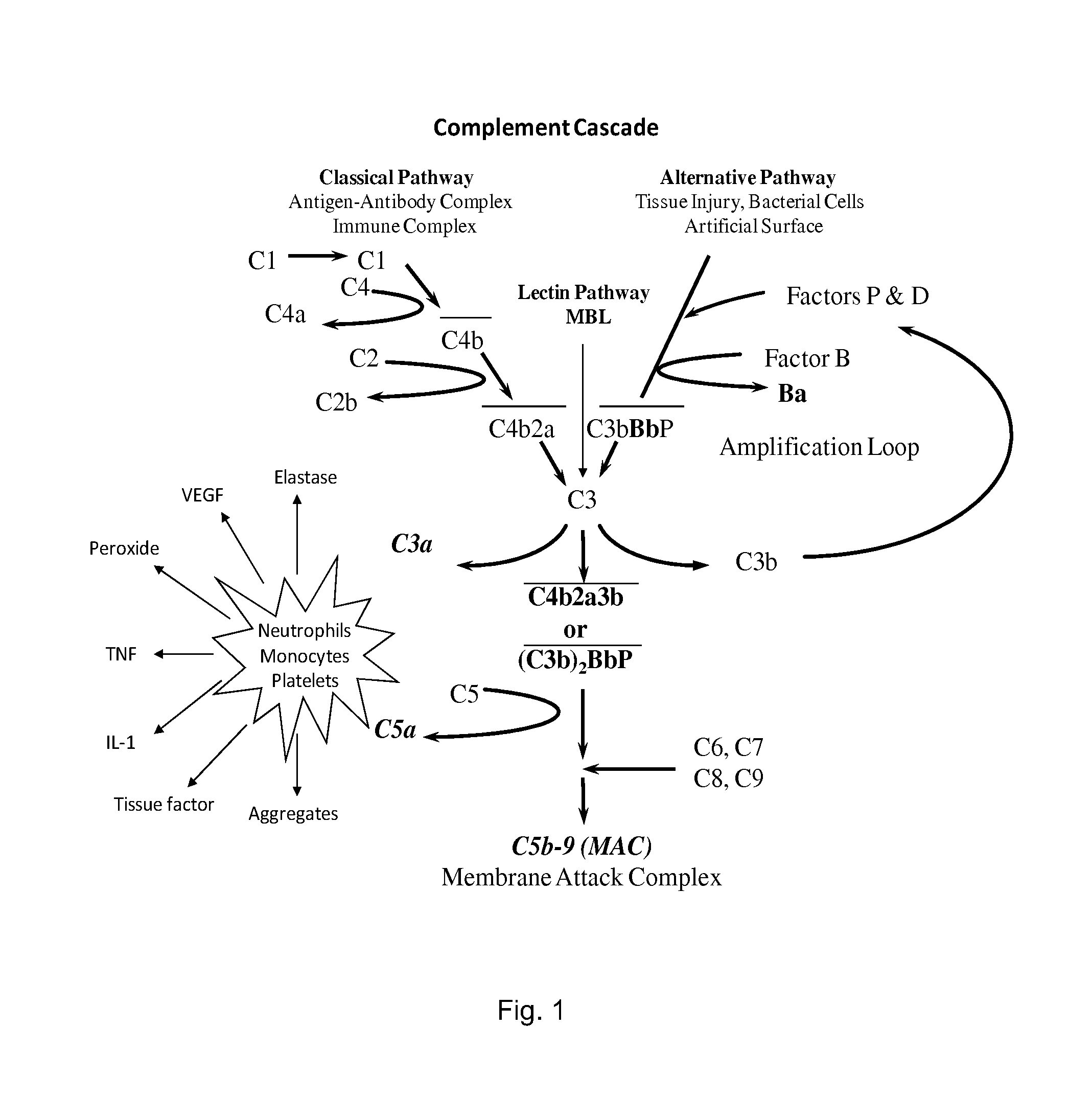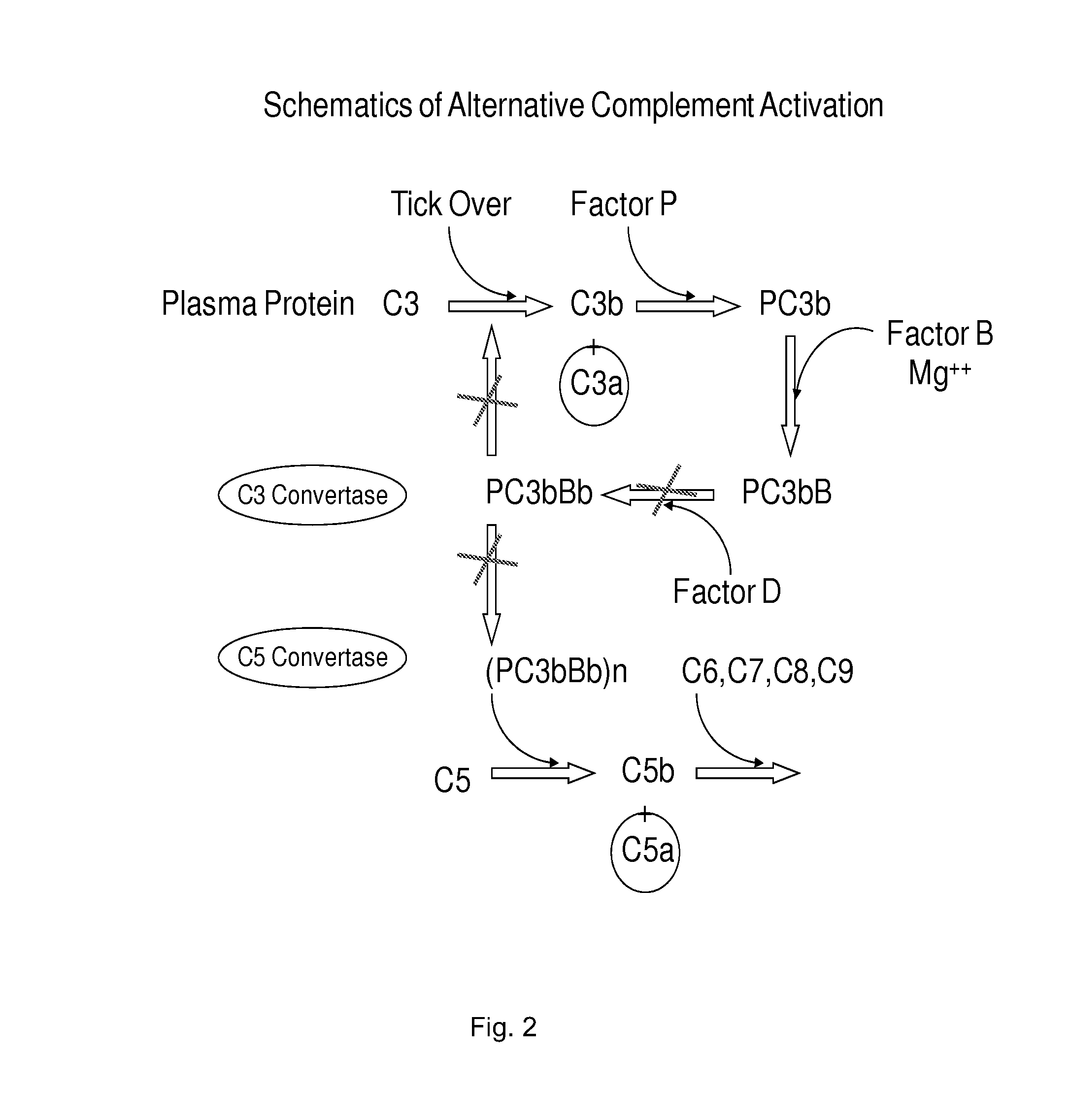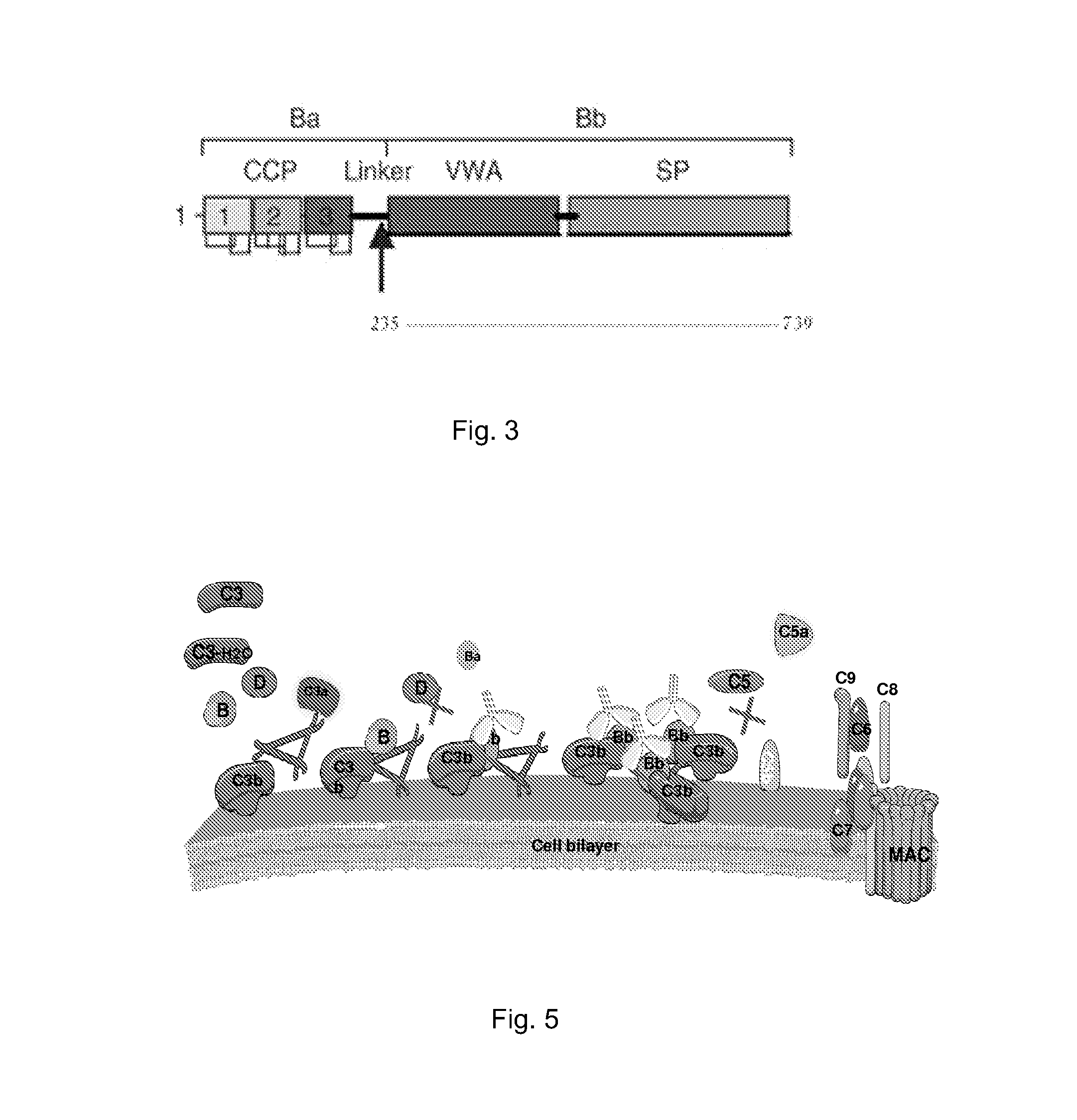Method of inhibiting complement activation with factor Bb specific antibodies
a technology of complement activation and specific antibodies, which is applied in the field of complement activation, can solve the problems of no approved drugs that can inhibit the damage, no potential threat to the host, and no approved drugs, etc., and achieve the effects of reducing the production of neutrophils, reducing the activation of monocytes, and reducing the activation of neutrophils
- Summary
- Abstract
- Description
- Claims
- Application Information
AI Technical Summary
Benefits of technology
Problems solved by technology
Method used
Image
Examples
example 1
Assembly of C3 Convertase: Interactions of Factor B, C3b and Properdin
[0144]It is known that Factor B binds C3b. It is also known that properdin binds C3b and that C3 convertase (PC3bBb) is stabilized in the presence of properdin. It has been debated whether properdin binds first or it binds after the C3bBb convertase is already formed. It is known that if AP activation does not proceed, C3b begins to degrade by the action of factors H and I into iC3b, C3c, and C3dg. The conversion of C3b into smaller fragments is indicative of degradation route of C3b. It is assumed that in a given system at a given time, there would be some degraded C3b components could exist. We evaluated whether B would bind C3b and PC3b with different affinities. We also evaluated iC3b, C3c, and C3dg for factor B binding in the presence and absence of properdin.
Factor B Binding to C3b and PC3b using ELISA Based Binding Assays
[0145]In the first experiment (FIG. 6), wells were coated with C3b (1 μg / 50 μl per well...
example 2
Screening and Selection of Anti-Factor Bb Monoclonal Antibodies
[0148]Six mice were injected with Factor B antigen. Mice sera were removed and evaluated for factor B binding as shown in FIG. 9. All sera containing the mouse serum were diluted and incubated with factor B coated plates. The binding of anti-factor B monoclonal was determined with Peroxidase-conjugated goat anti-mouse IgG. The data was plotted using MicroCal Origin program. In a typical assay, polystyrene microtiter plates were coated with human factor B (2 μg / 50 μl per well, (Complement Technologies, San Diego, Calif.) in phosphate buffered saline (PBS) overnight. After aspirating the factor B solution, wells were blocked with PBS containing 1% bovine serum albumin (BSA) (Sigma Chemical Company, St. Louis, Mo., Cat. No. A7888) for 2 hours at room temperature. Wells without factor B coating served as background controls. Aliquots of diluted hybridoma supernatants in blocking solutions at various dilutions were added to f...
example 3
Production and Purification of 1D3
[0152]1D3 secreting clone was isolated and expanded in culture. To produce large amounts of purified monoclonal antibody, 1D3 cells were injected into mice to produce tumors. The ascites fluid from such tumors were tested for blocking monoclonal antibody activity. As shown in FIG. 14, the monoclonal antibody (NM001) present in ascites fluid blocks hemolysis of rRBC in normal human serum. The blocking monoclonal antibody was purified using protein-G column (purity shown in FIG. 15) and again tested for blocking activity using rRBC as described in Example 1. As shown in FIG. 16, NM001 prevents hemolysis of rRBC at a concentration of 100 ug / ml. NM001 was fragmented into F(ab)2 using Ficin as per previously published methods. The purified fragment was named as Bikaciomab.
PUM
| Property | Measurement | Unit |
|---|---|---|
| molecular weight | aaaaa | aaaaa |
| molecular weight | aaaaa | aaaaa |
| concentration | aaaaa | aaaaa |
Abstract
Description
Claims
Application Information
 Login to View More
Login to View More - R&D
- Intellectual Property
- Life Sciences
- Materials
- Tech Scout
- Unparalleled Data Quality
- Higher Quality Content
- 60% Fewer Hallucinations
Browse by: Latest US Patents, China's latest patents, Technical Efficacy Thesaurus, Application Domain, Technology Topic, Popular Technical Reports.
© 2025 PatSnap. All rights reserved.Legal|Privacy policy|Modern Slavery Act Transparency Statement|Sitemap|About US| Contact US: help@patsnap.com



